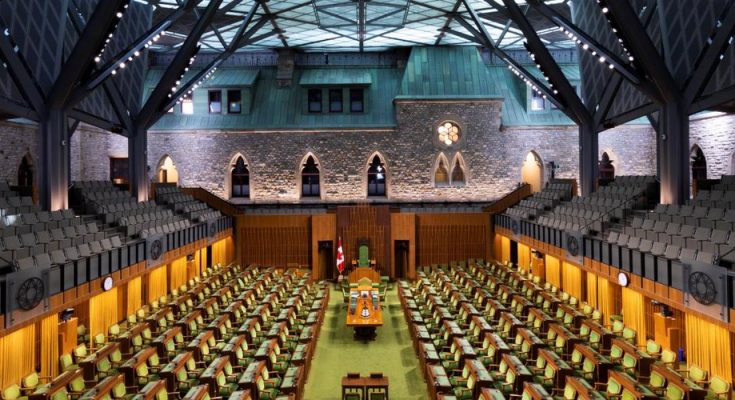The Liberal government’s reportedly major projects legislation with conservative support passed in the House of Commons on Friday evening setting it up to become law before Canada Day.
The legislation, also known as Bill C-5 or the one Canadian economy act, would facilitate the government to speed through the regulatory process, with an eye to projects that can deliver an economic boost to Canada.
Canada Prime Minister Mark Carney who promised to “build big, build bold” during the spring election campaign prioritized the legislation, which Liberals called it the core of the government’s domestic economic response to U.S. tariffs.
“This is what makes us different from the United States, this is what makes us more independent from the United States, this is what’s going to move us forward,” Prime Minister Mark Carney told a press conference Friday evening.
Having only been introduced earlier this month, the legislation passed fairly quickly.
The Conservatives supported the bill as a whole, while the NDP and Bloc Québécois backed a part of the bill that removes internal trade barriers.
Defending the speed with which his government pushed the bill through the House, Carney said that it needed to pass quickly “because we are in a crisis.”
“And if you don’t think we’re in a crisis, go to Sault Ste. Marie, go to Hamilton, go to Windsor,” he added.
The bill was introduced on June 6 and after about eight hours of committee study on Tuesday and Wednesday was pushed through the House .
Although what exactly would be fast-tracked under this legislation hasn’t been said by the government, Carney has pointed out new energy “corridors” in the east and west would be supported including pipelines and electricity grids, new and expanded port facilities, mines and other resource-related initiatives.
Lists of projects they want to see fast-tracked under the legislation, have been given to the government by the Provincial and territorial premiers but Carney said that no national list of projects has been created.
“We all agree that more fulsome conversations are needed to select the nation-building projects and to determine the conditions that they must fulfil. In other words, the real work begins now,” he said.
Alberta Premier Danielle Smith wants to fast track on building a pipeline through British Columbia.
After a first ministers meeting on Friday, B.C. Premier David Eby said in a media statement that he impressed upon his colleagues how central his province is to achieving the premiers’ priorities.
“As a gateway to growing markets in the Asia Pacific, any successful trade diversification strategy for Canada hinges on our success as a province. B.C. is the economic engine of the new Canada and must be treated fairly by Ottawa when it comes to infrastructure investment,” Eby said.
Carney has said that his government will not force projects on provinces or territories that oppose them.
Despite the bill passing in the House in less than a month, the legislation has drawn criticism from Indigenous leaders and environmental groups who say it gives too much power to the federal cabinet to bypass existing laws.
First Nations leaders have warnedthat the bill could violate their constitutionally protected rights, and may lead to legal challenges.
In his press conference on Friday, Carney tried to assuage some of those concerns.
“The major projects office will have an Indigenous advisory council whose core function will be to honour Section 35 rights in the implementation of this bill,” he said.
“Consultation, co-operation, engagement and participation are at the heart of this bill,” Carney said as he promised to hold full-day summits with First Nations, Inuit and Metis rights-holders and leaders in the coming weeks, alongside Crown-Indigenous Relations Minister Rebecca Alty and Indigenous Services Minister Mandy Gull-Masty, along with other cabinet ministers
Alty said the prime minister’s decision to hold those summits is a “serious sign” that Indigenous rights will be upheld.
The bill’s passage received applause by the Canadian Chamber of Commerce, which said in a media statement that it “rises to meet the moment” of the economic crisis caused by U.S. President Donald Trump’s trade war.
Although TC Energy’s president and CEO Francois Poirier called it “a bipartisan step forward for Canada to get back into the business of big nation-building projects,” he added the country’s regulatory framework is in need of reform.
As the House of Commons has adjourned until September, yhe bill is now headed to the Senate, which is scheduled to sit until June 27.





